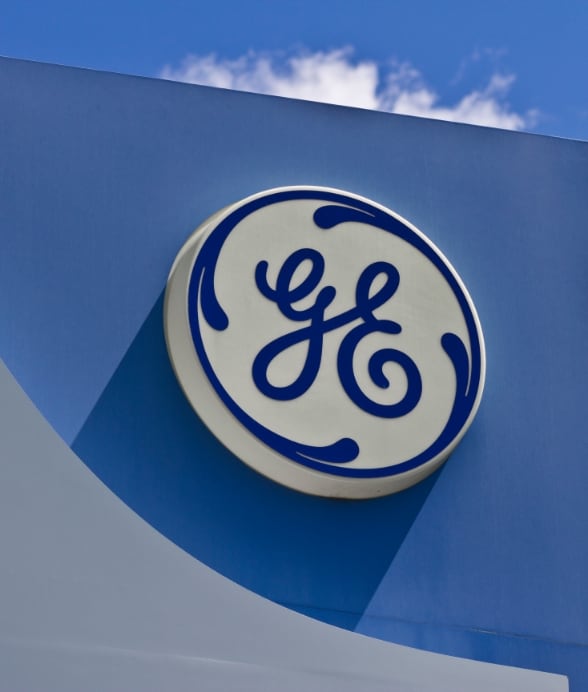CLIENT
INDUSTRY
Aerospace
Healthcare
Energy
FEATURING
Deals
PwC and GE: Bold Collaboration. Real Transformation.

SITUATION
Multiplying success: How PwC helped GE execute a historic transformation
GE and PwC had already delivered success together — now, we were jointly ready to take on the next challenge. GE would split into three independent public companies. GE especially valued PwC’s experience managing large-scale deal transactions. A key tenet of GE’s approach was to empower 95% of its experienced and trusted internal teams to focus on running the business. Simultaneously, the other 5% would work with PwC and focus its expertise to execute multiple spin-offs with minimal disruption. The teams had to execute across more than 90 countries and enable each business to thrive as an independent public company from Day One.
The scale and scope of the separations was immense, with over 40,000 execution actions across workstreams focused on managing regulatory compliance, retaining talent, maintaining customer and supplier relationships, separating IT infrastructure and optimizing financial and tax implications — just to name a few. Each new company represented a significant enterprise that required its own strategies.
Three companies, three distinct purposes: GE HealthCare, GE Aerospace and GE Vernova
GE’s new companies would embark on a unique mission within each industry.
- GE HealthCare: Driven to create a world where healthcare has no limits by digitizing healthcare, driving productivity to improve the lives of patients and creating meaningful efficiencies for providers, health systems and researchers around the world.
- GE Aerospace: Poised to invent the future of flight, lift people up and bring them home safely as a global aerospace leader in attractive propulsion, services and systems sectors.
- GE Vernova: Set to electrify the world while reducing carbon emissions, helping usher in a new era of energy that is more sustainable and innovative.
Understanding GE’s lean operational culture, PwC nimbly adapted to this culture while leveraging its deals-driven ethos, turning opportunity into growth. Together, the two teams worked to establish three companies as strong independent entities — equipping them with the foundations needed to compete and thrive in their respective markets.

RESULTS
GE’s new era of innovation
The team knew rigor, agility and strong governance were key to hitting each milestone, placing a strong focus on adopting GE’s lean methodology — a hallmark of its culture. This approach emphasizes continuous improvement and increasing productivity to deliver the highest value to customers. Throughout the separations, GE’s lean approach improved efficiency and helped promote consistent quality across all functions and business units.
The entire project — which encompassed coordinating and managing more than 40,000 execution actions across 90+ countries – benefited from clear deadlines and KPIs set at the very beginning, allowing for precise progress tracking and adherence to critical performance standards. In a large separation, governance is essential, and PwC leveraged its worldwide professional network to help make sure that the details were considered across workstreams and industries.
GE brought valuable insights and strategy to navigate the new business landscape, while PwC's deep global expertise in separation management helped confirm that all parties were aligned.
Three new companies
PwC helped GE strategically separate into three distinct companies, each focused on specific growing sectors: aerospace, healthcare and energy. This move allows each entity to hone its expertise and drive innovation within its industry. The agile approach also means each company can better serve modern customers by delivering specialized, tech-driven products and services tailored to their unique — and ever-evolving — needs.
“Teaming up with PwC was a game-changer for GE. PwC’s experience and guidance made the complex process of splitting into three independent companies smooth and efficient. Now, each of our new entities — GE HealthCare, GE Aerospace and GE Vernova — are positioned to lead in its sector and deliver unparalleled value to our customers. We couldn’t have done it without them."
PwC DIVESTITURES SERVICES
Fuel long-term growth with a bold, tech-powered divestiture strategy that keeps your portfolio ready for what’s next.
CASE STUDIES. REAL IMPACT.
Expertise. Technology. Results. Powered by collaboration. Explore our case studies to see what’s possible.










